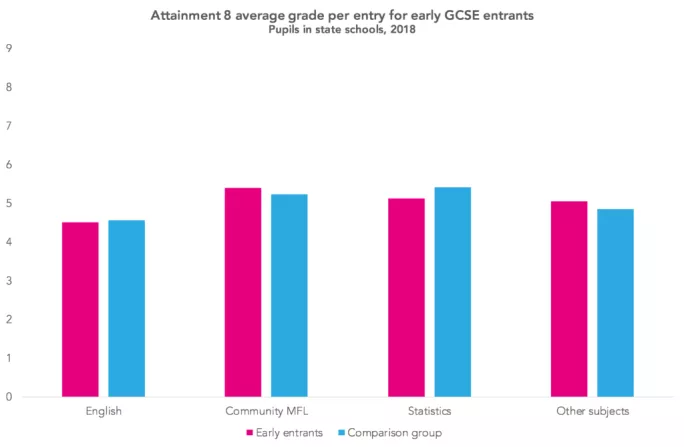When disadvantaged boys are entered early for English GCSE it raises their overall attainment, analysis shows.
There have been long-standing concerns that early entries can prevent pupils from getting the best grades in the subject concerned.
But a new study shows that the tactic can actually lead to slight improvements when all GCSEs are looked at.
In a blog from FFT Education Datalab today, researchers said that boys from disadvantaged backgrounds who were entered early for their English GCSE improved their overall attainment by 0.05 of a grade.
Dave Thomson, the author of the blog - which was based on data from state school pupils taking GCSEs in 2018 - said this was not unexpected.
GCSEs 2019: Progress 8 driving early entries in English
News: Early entries skew grades in core subjects
Related: ‘GCSE resits change lives, but there must be another way’
“The idea is that under Progress 8, the highest grade of English language or English literature is doubled provided that both are entered. So one is entered early ‘to get it out of the way’ leaving more time to concentrate on other subjects in Year 11,” he wrote.
The ‘benefit’ from early GCSE entry
Previously, Tes has reported that Progress 8 measures drove early entry in English literature GCSE in 2019.
The number of early literature entries rose by 39.1 per cent between 2017 and 2018, and rose again by 17.1 per cent this year.
Mark Bedlow, director of delivery at the AQA exam board, has said that the way English literature and language were weighted as part of Progress 8 could be increasing early entry patterns.
“We’ve seen it for a couple of years - it may be in part driven by the Progress 8 measure in school performance tables, [that counts] the better of your English language and literature grades,” he said.
In August, a previous blog by FFT Education Datalab said that pupils who sat GCSE subjects in Year 10 achieved lower outcomes in that subject by more than a third of a grade compared with their peers taking the same qualification in Year 11.
Today’s analysis used GCSE data from early entries in statistics; English language or literature; MFL community languages; and any other subject.
The study found there were mixed results in terms of the impact of early entry on overall attainment.
Early entries in both English and statistics tended to have lower overall Attainment 8 scores, with the statistics group achieving 0.3 grades lower per subject, while the English group had a 0.06 lower grade difference.
While early entry raised attainment for disadvantaged boys, this effect was not seen across the whole group.
However, early entries in community MFL and other subjects achieved approximately 0.2 of a grade higher overall.
“In English, the subject most likely to be entered early, it does not look like there is an overall effect of early entry but there might be a small benefit for disadvantaged boys,” the researchers concluded.





